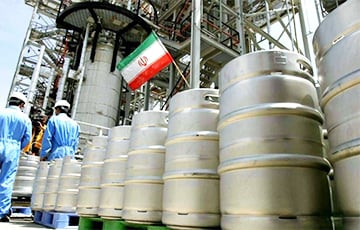What Is The Meaning Of Israeli Strikes On Iran's Nuclear Facilities
- 17.06.2025, 17:16
- 4,274

The main target is centrifuges.
Centrifuges at the uranium enrichment plant in Iran's Natanz are "severely damaged, if not completely destroyed," IAEA chief Rafael Grossi said. "We Can Explain" answers key questions about Israel's operation against Iran's nuclear program with experts.
Which facilities are Israel bombing?"
On the first day of the Israeli attack, the Natanz uranium enrichment plant was hit. Based on satellite imagery, its ground infrastructure has been destroyed. There is also damage to the nuclear center in Isfahan. Another enrichment plant in Fordow is unharmed, Grossi says - although Iranian media reported strikes on it. At Fordow, the centrifuges are deep underground - and Israel doesn't have the ammunition to hit them. The US is needed here - with its bombs or negotiations, writes military expert David Gendelman.
What is the purpose of these strikes?
Israel wants to deprive Iran of the ability to enrich uranium, Pavel Podvig, an atomic weapons researcher and head of the Russian Nuclear Forces project, told MO. "You need highly enriched uranium for a nuclear charge, and it is obtained in gas centrifuges. You don't even have to physically destroy them - it's enough to deprive them of electricity. A centrifuge can work for many years, but in case of an abnormal stop - it is almost impossible to restart it. It takes time and resources to produce new ones."
Was Iran really close to building nuclear weapons?
Explaining the attack on Iran, Israeli Prime Minister Binyamin Netanyahu said Tehran had stockpiled enough uranium to build 9 nuclear bombs - and had begun developing them directly. And could also allegedly transfer nuclear weapons to its terrorist proxies (meaning Hezbollah, Hamas, the Hussites, etc.). Western intelligence and experts doubt this, Podvig notes. "After the US withdrew from the nuclear deal in 2018, Iran began increasing the degree of uranium enrichment at its facilities, bringing it to 60%. To build a bomb, 90% or more is needed. But 60% also raised questions - why? Tehran explained it with scientific purposes, but he was not believed. Perhaps it was a political move - balancing on the edge of the possibility of obtaining nuclear weapons: today we are not building them, but we have the groundwork for it. The strategy was unsuccessful - Israel decided to launch a pre-emptive strike."
Is there a risk of radioactive contamination due to strikes on nuclear facilities?"
The radioactivity of natural uranium is low, even if the centrifuges are destroyed, only those immediately adjacent to them are at risk, Podvig says. "There is no question of any contamination of the area or radioactive fallout."











